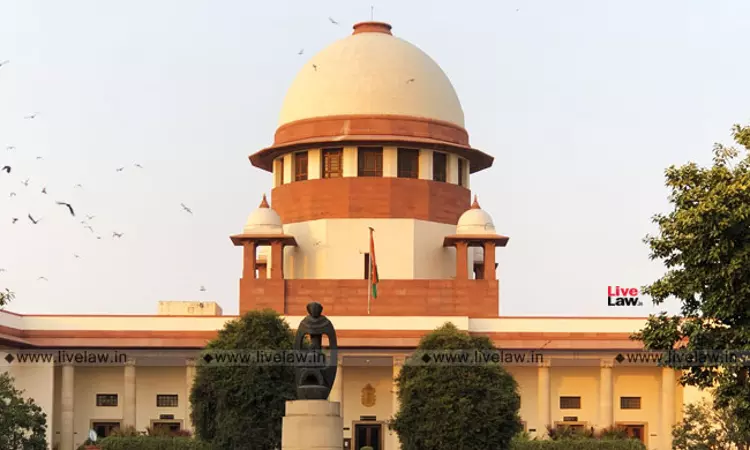Not Required To Play Video Evidence Before Witness Or Transcribe Its Contents For Admissibility : Supreme Court
Yash Mittal
16 Sept 2025 1:37 PM IST

If the video evidence is otherwise authenticated as per Section 65B of the Evidence Act, there is no requirement to play it before the witness.
The Supreme Court held that a video recording of the seizure of contraband is admissible in evidence without requiring its transcript. The Court clarified that once a valid electronic certificate under Section 65B of the Evidence Act is produced, the video's authenticity stands proved, and it is unnecessary to play the recording before each witness shown in it during their testimony to make the video recording admissible.
A bench of Justices Manoj Misra and Ujjal Bhuyan set aside the Bombay High Court's order which directed a retrial in an NDPS matter just because the video which contains the recording of the seized contraband, was not played before witnesses during their testimony, nor transcribed.
The judgment authored by Justice Misra, finding the High Court's approach to be erroneous, observed:
“However, strangely, the High Court opined that the video would become relevant only if it is played during deposition of each witness so that the witness could explain its contents in his own words resulting in a transcript of the video. In our view, this is a strange and unacceptable reasoning for the simple reason that the CD is an electronic record and once the requirement of Section 65B is fulfilled it becomes an admissible piece of evidence, like a document, and the video recorded therein is akin to contents of a document which can be seen and heard to enable the Court to draw appropriate inference(s). No doubt, there may be an occasion where to appreciate contents of a video an explanatory statement may be needed, but that would depend on the facts of a case.”
“However, it is not the requirement of law that the contents of the video would become admissible only if it is reduced to a transcript in the words of a witness who created the video or is noticed in the video. Besides that, in the instant case, the search and seizure operation was sought to be proved by oral evidence of witnesses. The video, therefore, was perhaps to corroborate the oral testimony. Even the judgment of the trial court makes it clear that the video was played in court in the presence of all accused as well as both sides counsels and the presiding officer, upon seeing the video, could spot and confirm the presence of witnesses as well as the accused at the time of search and seizure. In such circumstances, in our view, a re-trial is not required only to explain the video.”, the court added.
Background
The case arose from coordinated raids in which police seized nearly 147 kg of 'ganja' from two locations. The trial court convicted two accused, including the Appellant, and acquitted two others. On appeal, however, the Gujarat High Court set aside the convictions and ordered a retrial, citing procedural lapses such as - failure to play a raid video in court during witness testimony, non-examination of the Chemical Examiner, and non-production of the bulk contraband in court.
Disagreeing with the High Court's reasoning, the Court said that non-production of the entire seized contraband is not automatically fatal if inventories, sealed samples, and FSL reports are duly prepared under Section 52A of the NDPS Act.
The Court observed that the trial record demonstrated the entire seizure process had been properly documented, establishing a clear link between the seizure and the forensic results, and therefore its absence in court was not fatal to the prosecution's case.
Cause Title: KAILAS S/O BAJIRAO PAWAR VERSUS THE STATE OF MAHARASHTRA
Citation : 2025 LiveLaw (SC) 914
Click here to read/download the judgment
Also From Judgment: NDPS Act | Non-Production Of Contraband In Trial Not Fatal If Seizure, Sample-Drawing Duly Recorded As Per S.52A : Supreme Court


